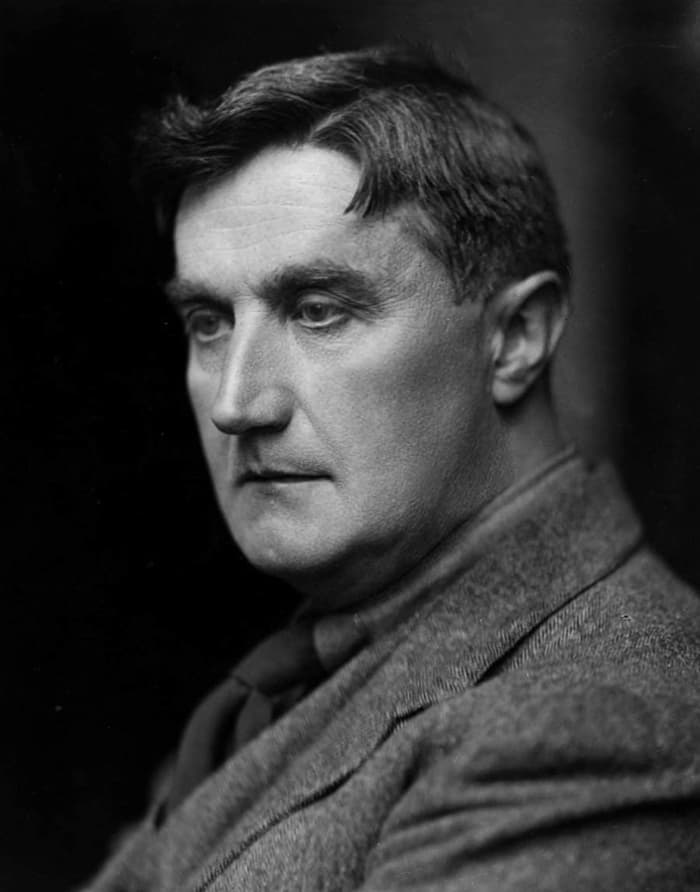To commemorate the 50th anniversary of the founding of the London Symphony Orchestra, a very special premiere took place on 13 June 1954. Philip Catelinet, the orchestra’s principal tuba player, featured as the soloist in Ralph Vaughan Williams’ Tuba Concerto, the first such major work written for the instrument.

E.O. Hoppé: Vaughan Williams, 1920
The reputation of Ralph Vaughan Williams as the most important English composer of his generation squarely rests on his compositions for the operatic stage and the Concert Hall. These theatrical dramas and orchestral essays characteristically reference the landscapes, myths, and folklore of an extended English sensibility. Yet, in the Tuba Concerto, the principal aim was to give the tuba “a good show.”

Contrabass, Bass and Tenor Tubas
Critics, however, declared the tuba completely unfit for virtuoso performance and suggested that the work “sounded like a whale being strangled by a giant squid.” Even the chosen soloist initially had doubts, “I really couldn’t appreciate the idea of the tuba being the center attraction as a soloist on a concerto at an orchestral concert. The tuba was too often connected by the public with what was humorous and ludicrous to be considered seriously a possibility on a concert platform.”
Ralph Vaughan Williams: Tuba Concerto
Vaughan Williams, however, did take the challenge seriously and explored the entirety of the bass tuba’s range of expression, including major cadenzas at the ends of outer movements. As Vaughan Williams’ biographer, Michael Kennedy, puts it, “There is nothing patronizing or parodistic about this concerto. The composer wanted to give the tuba a rare chance to take center stage and went to considerable effort to study its capabilities. True, its elephantine humor is exploited in the first movement… but the slow movement has a principal theme of lyrical beauty such as Vaughan Williams might have awarded to the viola.” The first performance sounded with the LSO under the direction of Sir John Barbirolli, and with Philip Catelinet as the soloist at London’s Royal Festival Hall on 13 June 1954. Catelinet reports, “The applause seemed sincere enough; probably happy, along with me, that I had finally made a tuba concerto sufficiently plausible musically to be acceptable.”
For more of the best in classical music, sign up for our E-Newsletter
